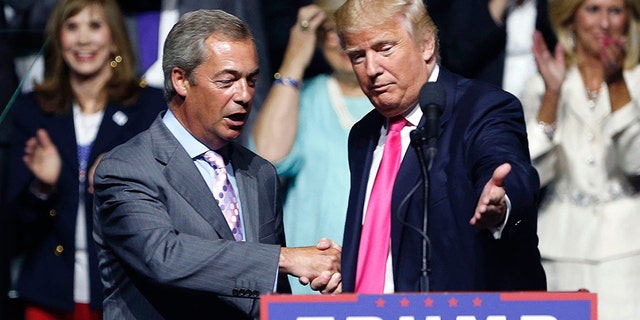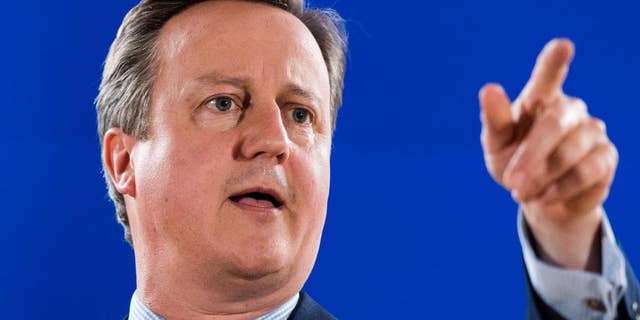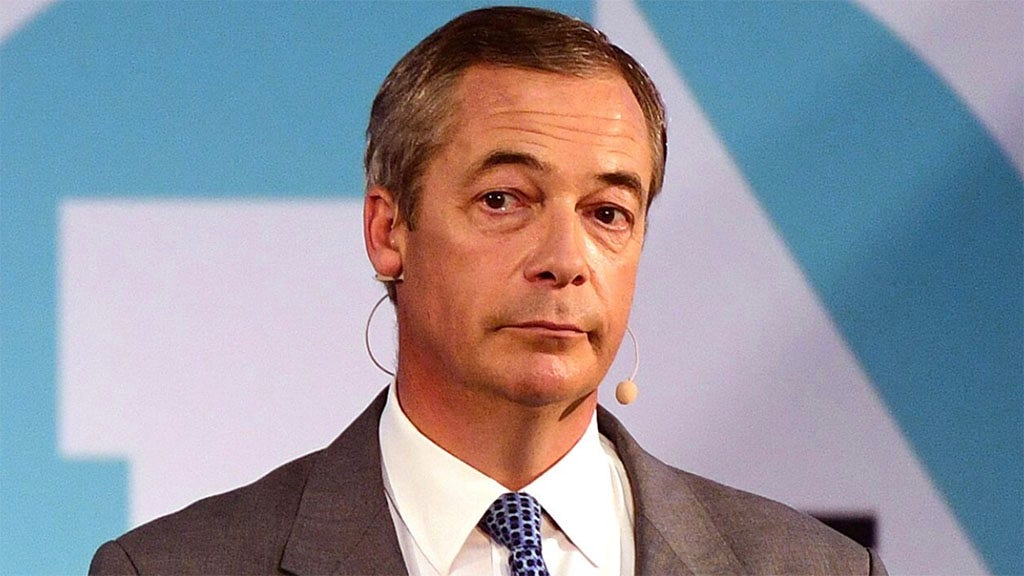Nigel Farage: Brexit battle showed both parties ‘sing the same song’ about populism ‘without meaning it’
Since the 2016 Brexit of Great Britain from the Belgium-based confederation known as the European Union, many populist civilians have begun to take note that not even elected officials on their own flank truly believe in democracy or republicanism as-defined, Brexit Party founder Nigel Farage told Fox Nation on Wednesday.
Farage, who resigned as leader in March and was succeeded by developer Richard Tice in the now-monikered Reform UK Party, told “Tucker Carlson Today” the Brexit movement and its electoral success revealed more than expected in terms of how tightly elected officials subscribe to globalism over democracy.
Farage joked the U.S.-based Tea Party, organized in 2010 following President Obama’s sudden leftward lurch of American politics – via the passage of ObamaCare and other programs – are “newcomers” and that he has been a populist leader since the 1990s.

Nigel Farage campaigned with then-candidate Trump in 2016.
(AP)
“I guess the advantage we had [as Brexit proponents was] it was a very clear, simple prospectus,” he said.
“We (the United Kingdom) joined something called the European Union, a political union. We’d effectively become a province of this new globalist structure. So the idea that we want to leave– it was a very clear yes or no decision, whereas most populist movements are about changing the narrative. And it’s more difficult to pin down what success is.”
“And they got outflanked, so the established parties start to sing the same song as the populists without actually meaning it.”
Farage said then-Prime Minister David Cameron, leader of the Conservative Party – which is considered the British version of the right-wing U.S. Republican Party – was promising to “reform” the system from his perch at 10 Downing.
‘We’re going to fight for a better deal’ [Cameron would say], but he could never say we’re going to leave the E.U,” Farage continued. “So that was the one advantage I had. It was a very, very clear prospectus. Now, it still took a heck of a long time. But in the end, we won despite everything.”
Farage said that Cameron and his Conservative prime ministerial successor Theresa May’s reticence notwithstanding, Brexit continued to face headwinds from both at home and across the pond in the U.S.

FILE-In this Tuesday, June 28, 2016 file image, British Prime Minister David Cameron addresses the media during an EU summit in Brussels. (AP Photo/Geert Vanden Wijngaert file)
(The Associated Press)
“Despite President Obama flying to London to tell us that we’d be at the back of the line, with all the global businesses, all the trade union movements. I mean, everybody. And yet, we managed to win. And it was one of those times when the silent majority decided the moment had come to go out and speak,” he said.
“That was the moment that I realized that nobody in power anywhere in the world believes in democracy. I never had figured that out before.”
Despite strong opposition from Labour – the U.K.’s version of the left-wing U.S. Democratic Party – and reticence from leaders of the Conservative Party, Farage’s vision succeeded at the ballot box, and the U.K. was set to be independent once again.
“It was itself a referendum on democracy– do you want more control over your life, that’s what democracy is,” he said. “And all of a sudden, you got lectures from people claiming to represent democracy telling you that, no, you’re not allowed to opt out.”
Since Brexit, there has been continued opposition from left-leaning factions like Labour, and the Scottish National Party (SNP), as well as in Northern Ireland over concerns about the U.K.’s relationship with the E.U.-member Republic of Ireland.
However, all sides in the Brexit negotiations believed that any considerations therein must respect the 1998 Good Friday Agreement, which brought an end to decades of “the Troubles” and established the contemporary relationship between both parts of the emerald isle.
Farage later explained that Brexit proponents and voters alike were routinely being cast as “knuckle-dragging thicko-racists” and wrongfully nationalist, which he said were soundly mischaracterized.
“How is it racist to be for Brexit?” Farage asked host Tucker Carlson.
“Oh, it’s [allegedly] xenophobic, because you believe in the nation-state, because you believe in the flag, because you dare to say that you’ve got something called national identity. This was all cooked up to be extremism and racism.”
“And so Brexit voters were made to feel guilty about what they’d done. You know, they’d done this terrible thing,” he continued. “Did we realize that the economy was going to crash, that millions would be unemployed as a direct result of it, that ethnic tensions within the country would rise?”
“They didn’t quite tell us that plagues of black locusts would descend upon the land, but it came pretty close to it. And it was astonishing, and three and a bit years on, we were still members of the European Union. There was almost no prospect of us leaving. And we had to come back and beat them a second time, which we did, not in a second referendum. But we had a European election in 2019 because we were still members. We had to re-vote on members of the European Parliament.”
At that point, Farage said, he reestablished the contemporary “Brexit Party” which united Conservative and Center-Left factions supportive of the break from the E.U. and later received 50% more votes than any other party in EU elections.
“Before the votes were counted, Mrs. May resigned as prime minister, and we got Brexit,” he said. “So we had to fight more than one battle to get there, but we did it. It’s done. There’s no reversing it.”
“And I think we look at the globalist structure that is the European Union, Brexit is the beginning of the end of it.”
Farage further remarked that the Danish government also appeared to foresee what he did, in that they were markedly a major European nation to decline to join the E.U. – which they now essentially border via their major southern neighbor Germany.
Host Tucker Carlson added that while Farage is seen as a major populist leader in Europe, Donald Trump could be considered the leader of the North American populist movement as well.





